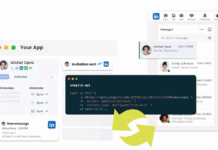Software startups are the newest business sensation of the town. Everybody from investors, entrepreneurs, and IT geeks know the importance and impact of software products in every industry. With these startups and their products around, every service and every industry are radically changing business structures and modes of operations as per the new trends. Be it in the field of medicine, engineering, education, sports, management, or the military, software products are everywhere. Furthermore, their demand keeps growing day by day, leading all industries and services to sign up for the services of software startups.
What Is a Startup?
In the business world, a startup is a company built solely to seek and grow upon a scalable business model. The focus of these startups is growth and increasing their reach upon the masses via various strategies. Entrepreneurs willing to initiate a startup must ensure that they have unique and appealing idea to be presented to the people. However still, every startup company faces many uncertain situations in the beginning. Moreover, the potential of failing is always there.
This situation is pretty much resonant with software startups. Although companies and industries are always on the lookout for software startups that can help them digitalize and automate their processes, this doesn’t imply a hundred percent success of every software startup project. The reasons for this are some common yet dire mistakes that make these startups repulsive in the eyes of their clients, thus leading them to their demise.
Mistakes of Software Startups
Although there is a very long list of common mistakes made that software startups make, this article speculates on some of the most common yet deadly mistakes that must be avoided at all costs by every software startup. These mistakes are:
- Failure to understand the client’s requirements
- Making incoherent and incomplete strategies
- Cutting down the costs by compromising on value
- Unclear project estimates
- Emphasizing a lot more designing
- Avoiding product testing
- Communication gaps and lack of feedback
Failure in Understanding the Client’s Requirements
Today, most clients look for those software developers that can provide them a product tailored to their specific enterprise needs. For this purpose, a software startup must have expertise in custom software development. Such software startups know how to satisfy their client’s specific needs and deliver them the value they are looking for. These custom software development startups, like https://bekey.io/custom-software-development-for-startups, make sure that all requirements regarding product manufacturing and delivery is bug and error-free with maximum output and full-fledge productivity. However, bear in mind that if the clients still find any lacking in the performance of these startups, chances are high for them to fail.
Another mistake these startups make in recognizing their client’s requirements is that they do not bother to go through the requirements thoroughly. Likewise, many fail to understand the requirements in the first place. To avoid such mishaps, it is crucial for these startups to arrange frequent and meaningful meetings with their clients. By establishing a proper communication channel at every stage of development, the software startup ensure the successful delivery of results.
Making Incoherent and Incomplete Strategies
Many software startups consider strategy to be secondary during software development process. Instead of taking out time to devise an ideal strategy before beginning the work on a project, these startups immediately go to the development of the software their client requires. This leads to confusion among the developers, and the tasks keep clogging the work pipeline. To avoid this common mistake, software startups should consider the following points before they begin working on a project:
- What achievement do they want to acquire with the development of this software?
- What are the specific requirements and demands of their client regarding the project?
- What software strategy and work framework do they want to opt for this particular project?
- What outcome of the project are they expecting?
Taking the time to answer these questions and building a correct roadmap before beginning a project can save the startup from many mishaps.
Cutting the Costs by Compromising on Values
This is yet another common mistake that every software startup must avoid. Usually, software startups try to acquire more projects, and the method they use to appeal to the clients is to show them the lowest possible cost of working. And although they can complete the project for their clients at the lowest possible costs, one thing they must compromise on is the value of the work they are delivering.
Thus, every software startup needs to have the correct expertise to thoroughly analyze the software development processes and the economic outlook for the project. Henceforth, a software startup must have the required skilled personnel and departments to take care of the project’s economic and technical outlook.
Being Unclear in Project Estimates
This another common yet often overlooked mistake that most software startups make. They fail to project the amount of money and time they have to invest in a particular project. This results in them providing their clients with unclear and vague estimates, causing an atmosphere of uncertainty and mistrust.
There are two ways a software startup can mess things up by making unclear estimates:
- They undervalue the amount of money and time required; or
- They overvalue the amount of time and money required for the project.
To avoid such unreasonable expectations, it is important to take the opinion of every department concerned with the project development. Economic advisors must be approached to provide the correct guidelines regarding the amount to be spent on the project. At the same time, software development professionals must be kept in the loop to estimate the required time for the project’s completion and delivery.
Over-Emphasis on Designing
This is a common mistake with custom software development companies. Since their expertise is in providing a product that meets the specific demands of their clients, they often forget to improve the product’s functionality. Although they should focus on the software’s design, their primary concern must be its working and functionality. In short, their ultimate aim must be to provide a product that has a decent design, a user-friendly interface, and a seamless navigation system. For such custom software development companies, it is imperative to know that their clients do not want software that looks beautiful. Rather, their top priority is to get software that can ease their working by automating their tasks.
Avoiding Product Testing
In order to deliver the project before the deadline, many software startups skip testing their product and hand it over directly to their customers. For such software startups, it is essential to conduct product testing in the middle of the development process as well as at its end. If the startups do not test the essential components of their products in the middle of development, there is potential danger of their product meeting a drastic failure at its completion. This results in a waste of time, money, and resources. Moreover, not testing the products after their completion and handing them over to clients can cause chronic damage to the startup’s reputation.
In order to avoid this costly mistake, software startups can take the following measures:
- They should ensure the proper time management in the workplace.
- They should ensure that every individual and every department must complete the tasks allocated to them in the given time period. This helps avoid completing the work hastily to avoid deadlines.
- Proper allocations of resources must be ensured and maintained to avoid clogging.
- Startups must implement proper testing systems at every phase of the project.
By implementing these strategies, software startups ensure that their final product is delivered to their clients while functioning to its maximum potential. This results in development of mutual trust and ensures more proposals from the same client in the future.
Communication Gaps and Lack of Feedback
Smooth and proper communication is very necessary between the software startup and the client. This is especially true during the development of custom software products, where clients and developers must be in complete symphony and agreement regarding every detail of the project. From its beginning till its end, there must be clear communication of every milestone achieved or any interruption in work.
Moreover, the developers must also ensure asking their clients for regular feedbacks. This keeps them aware of their client’s requirements and tells them about any particular changes they want in their product. Not considering the feedback or simply brushing it away can lead to very dire consequences for any software startup.
If you want to learn more about how startups work, follow this link: https://en.wikipedia.org/wiki/Startup_company.
Final Comments
The world is seeing a rampant rise in the emerging of new software startups. For every new software startup project, only those companies who thrive manage to stand out by identify their mistakes. But those that fail to recognize mistakes and remain ignorant about them, sooner or later, meet a very tragic end.
Find a Home-Based Business to Start-Up >>> Hundreds of Business Listings.
















































